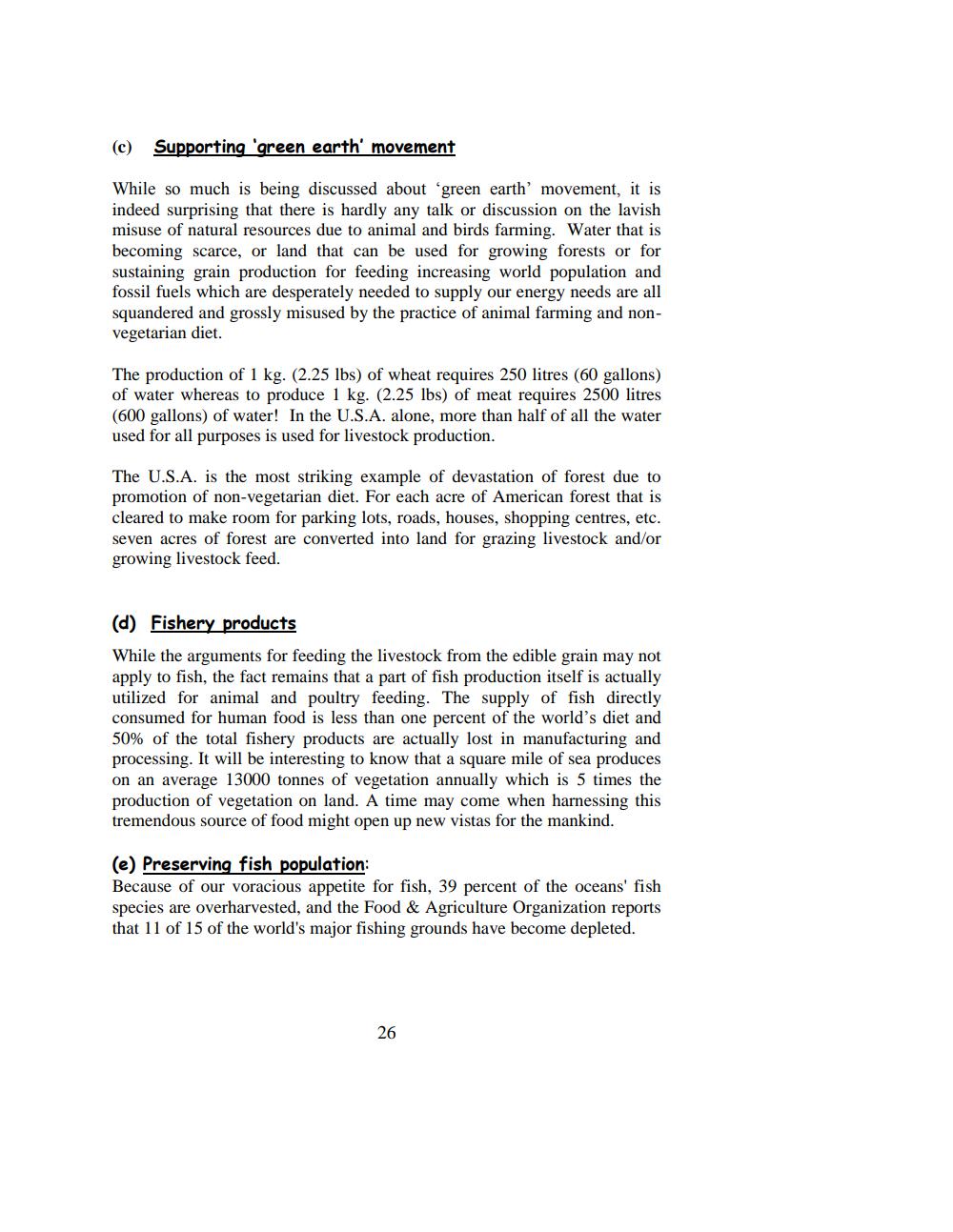________________
(c)
Supporting green earth movement
While so much is being discussed about 'green earth' movement, it is indeed surprising that there is hardly any talk or discussion on the lavish misuse of natural resources due to animal and birds farming. Water that is becoming scarce, or land that can be used for growing forests or for sustaining grain production for feeding increasing world population and fossil fuels which are desperately needed to supply our energy needs are all squandered and grossly misused by the practice of animal farming and nonvegetarian diet.
The production of 1 kg. (2.25 lbs) of wheat requires 250 litres (60 gallons) of water whereas to produce 1 kg. (2.25 lbs) of meat requires 2500 litres (600 gallons) of water! In the U.S.A. alone, more than half of all the water used for all purposes is used for livestock production.
The U.S.A. is the most striking example of devastation of forest due to promotion of non-vegetarian diet. For each acre of American forest that is cleared to make room for parking lots, roads, houses, shopping centres, etc. seven acres of forest are converted into land for grazing livestock and/or growing livestock feed.
(d) Fishery products While the arguments for feeding the livestock from the edible grain may not apply to fish, the fact remains that a part of fish production itself is actually utilized for animal and poultry feeding. The supply of fish directly consumed for human food is less than one percent of the world's diet and 50% of the total fishery products are actually lost in manufacturing and processing. It will be interesting to know that a square mile of sea produces on an average 13000 tonnes of vegetation annually which is 5 times the production of vegetation on land. A time may come when harnessing this tremendous source of food might open up new vistas for the mankind.
(e) Preserving fish population: Because of our voracious appetite for fish, 39 percent of the oceans' fish species are overharvested, and the Food & Agriculture Organization reports that 11 of 15 of the world's major fishing grounds have become depleted.




